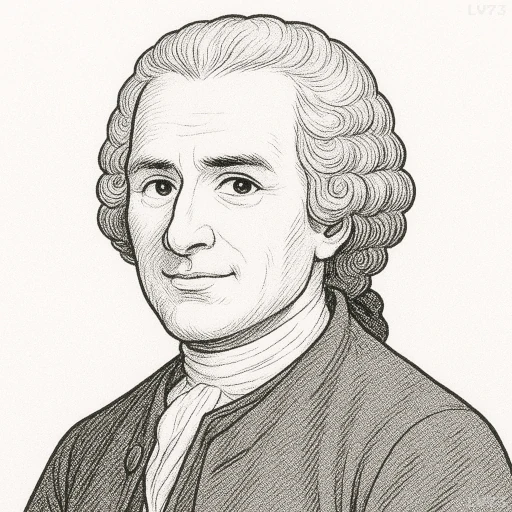“Virtue is a state of war, and to live in it we have always to combat with ourselves.”

- June 28, 1712 – July 2, 1778
- Born in Geneva
- Philosopher, political philosopher, writer, composer
table of contents
Quote
“Virtue is a state of war, and to live in it we have always to combat with ourselves.”
Explanation
In this quote, Jean-Jacques Rousseau reflects on the struggle inherent in the pursuit of virtue. He suggests that living virtuously is not an easy or peaceful task but rather a constant battle—one that takes place within the individual. The combat Rousseau refers to is not external but internal: a conflict between one’s natural impulses and the moral standards that society or personal conscience demands. For Rousseau, virtue is not simply a passive state of goodness but requires active effort, self-discipline, and constant self-reflection. It’s a war against the parts of ourselves that seek self-interest, pleasure, or indulgence, demanding instead that we cultivate moral strength and integrity.
Historically, Rousseau’s view on virtue reflects his broader philosophy about human nature and society. He believed that in the state of nature, humans were inherently good and uncorrupted, but society’s institutions—such as government, education, and social norms—led people to become selfish, competitive, and disconnected from their natural goodness. Rousseau’s notion of virtue as a “state of war” suggests that it is only through self-awareness and a continuous effort to align our actions with our moral compass that we can resist the corrupting forces of society and return to a state of moral purity. This ongoing struggle is central to his ideas on personal development and the pursuit of a moral life.
In modern times, Rousseau’s concept of virtue as a personal battle resonates with contemporary ideas about self-control, self-improvement, and moral development. Whether in the context of mental health, ethical behavior, or personal growth, the idea that living a virtuous life requires constant effort and struggle is widely acknowledged. It speaks to the difficulty of overcoming personal weaknesses, societal pressures, and internal contradictions. In today’s world, where distractions, temptations, and moral ambiguities abound, Rousseau’s reflection serves as a reminder that virtue is not a passive achievement but an ongoing, active commitment to striving for moral excellence despite the challenges that arise from both within and outside ourselves.
Would you like to share your impressions or related stories about this quote in the comments section?



